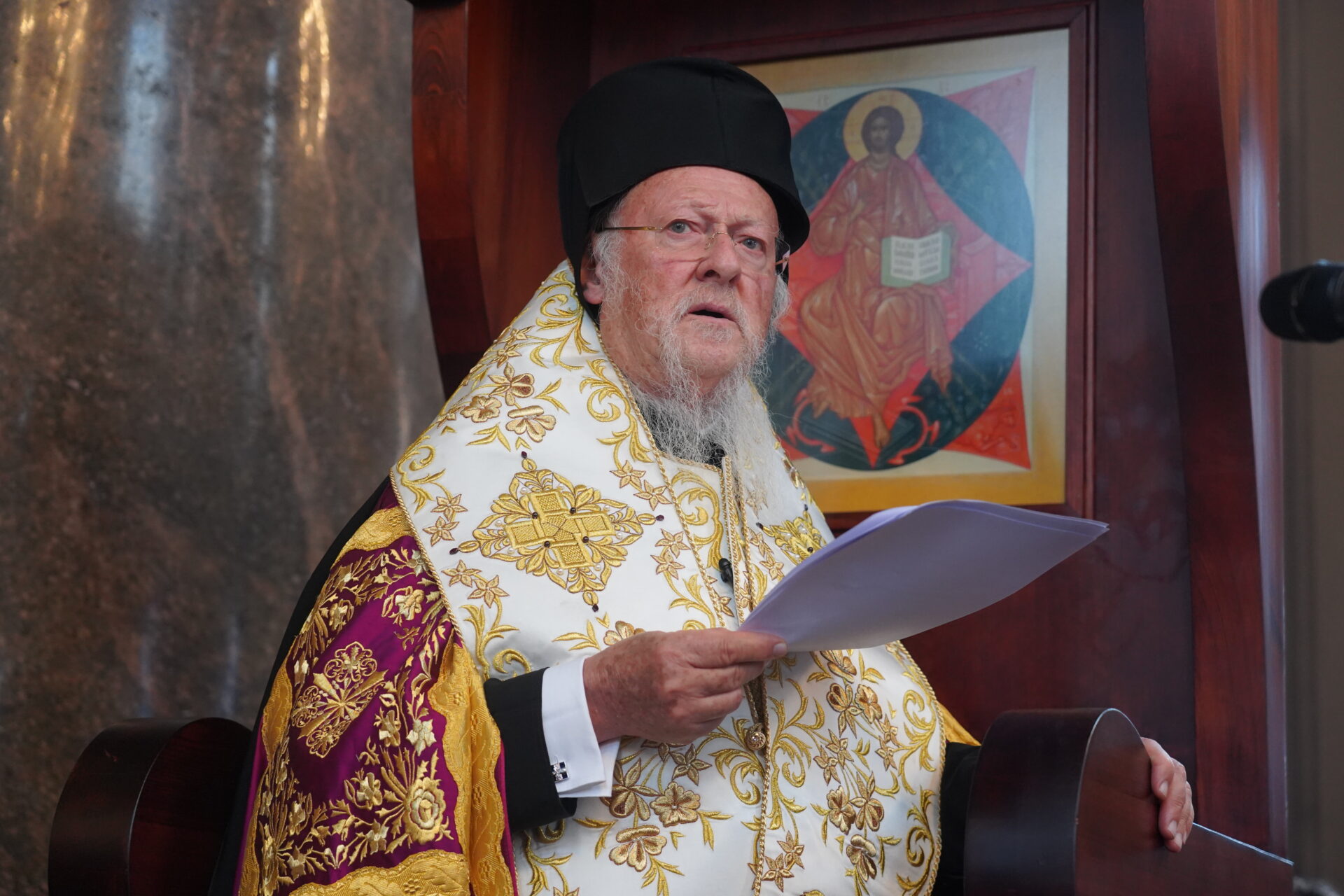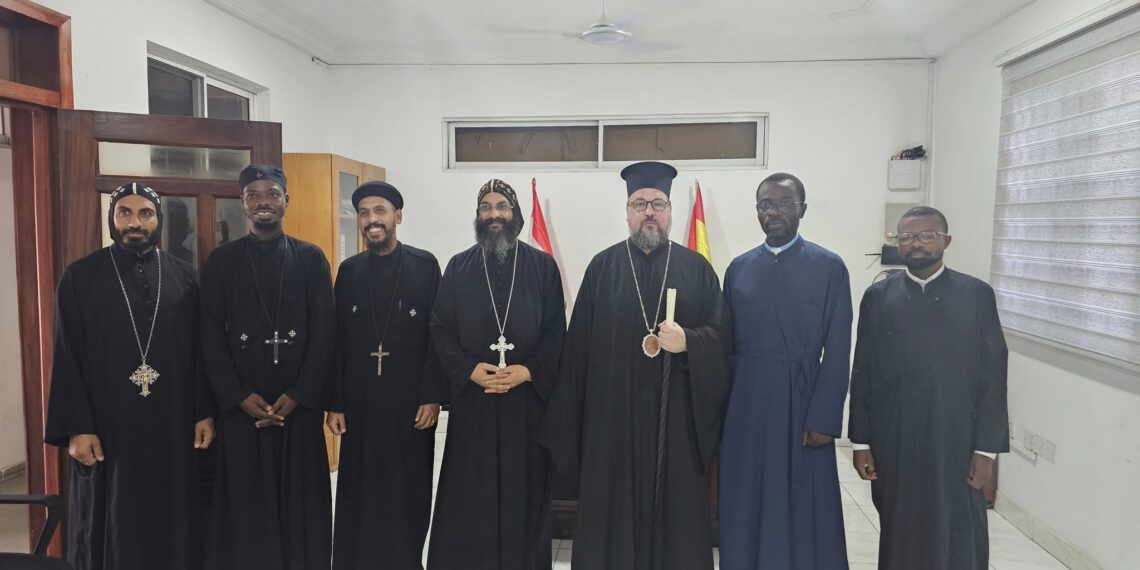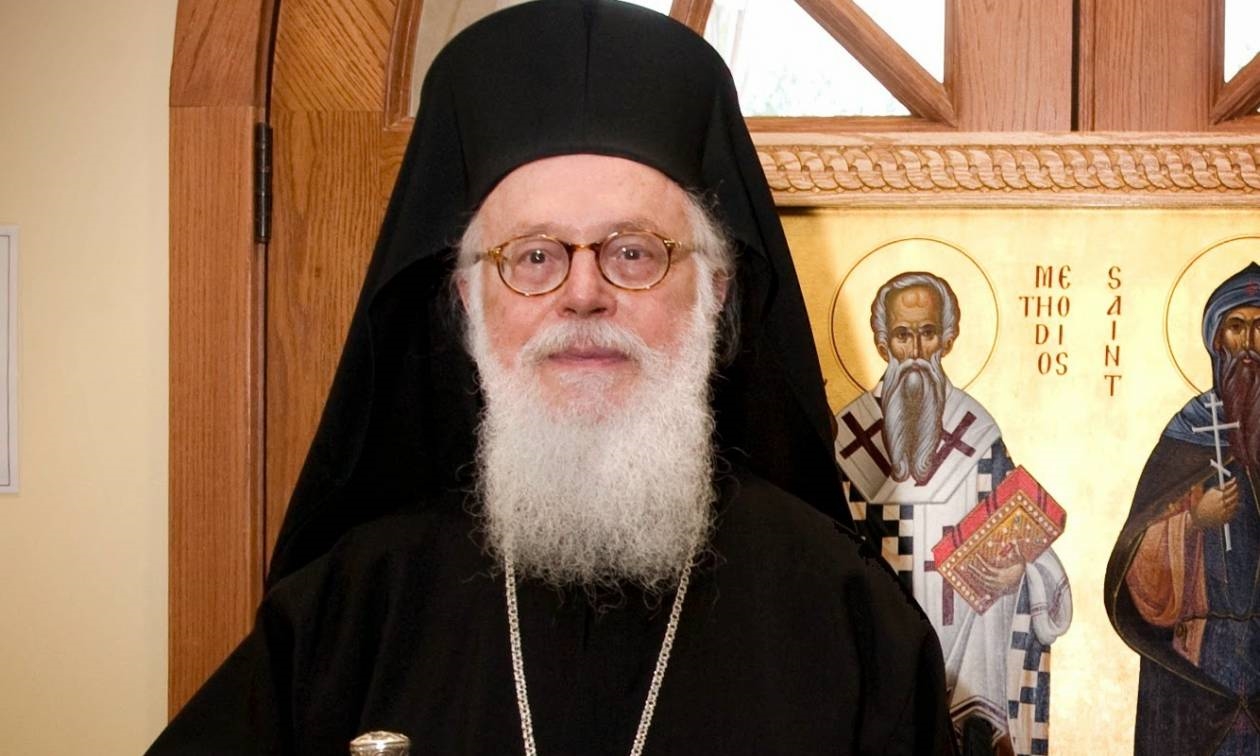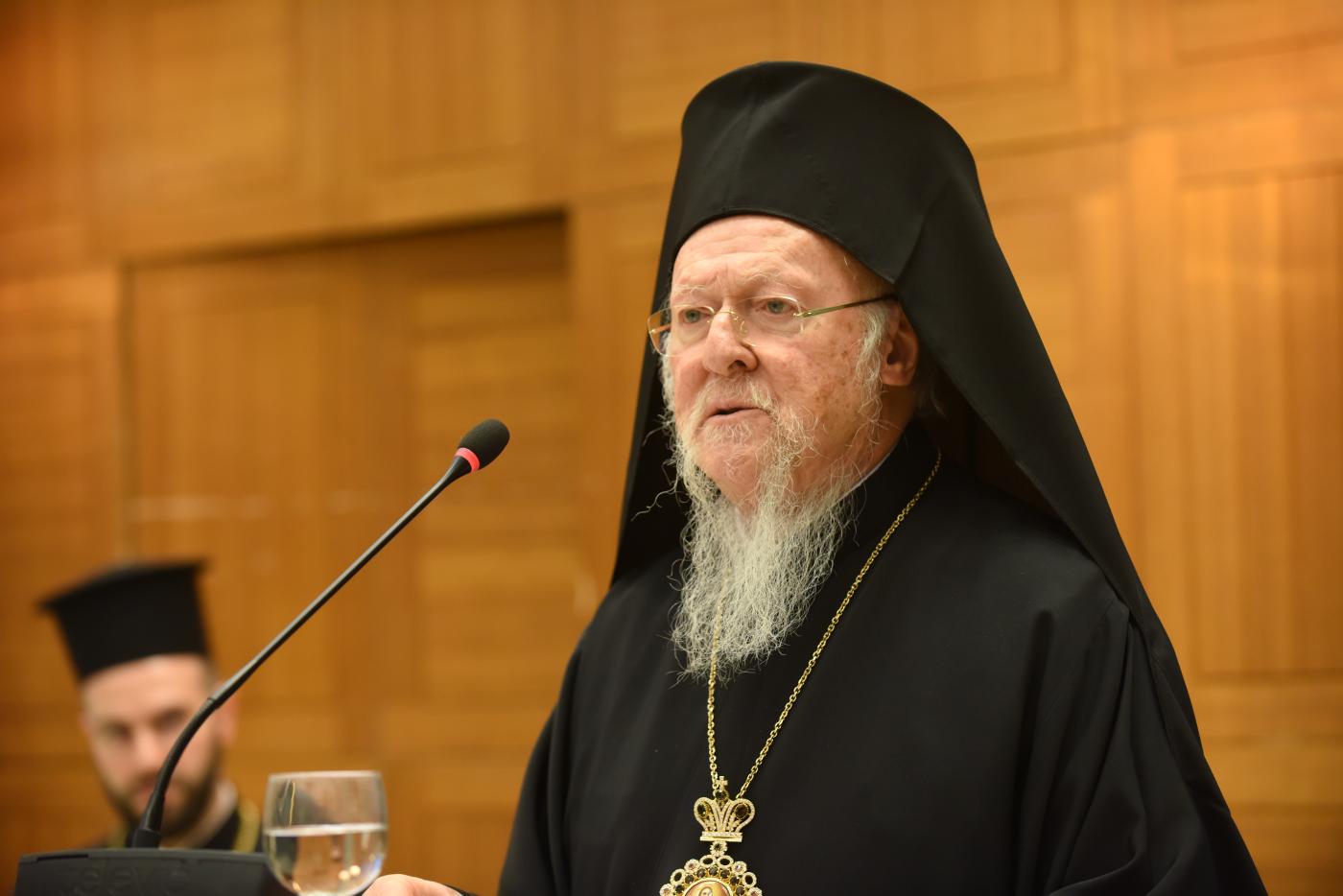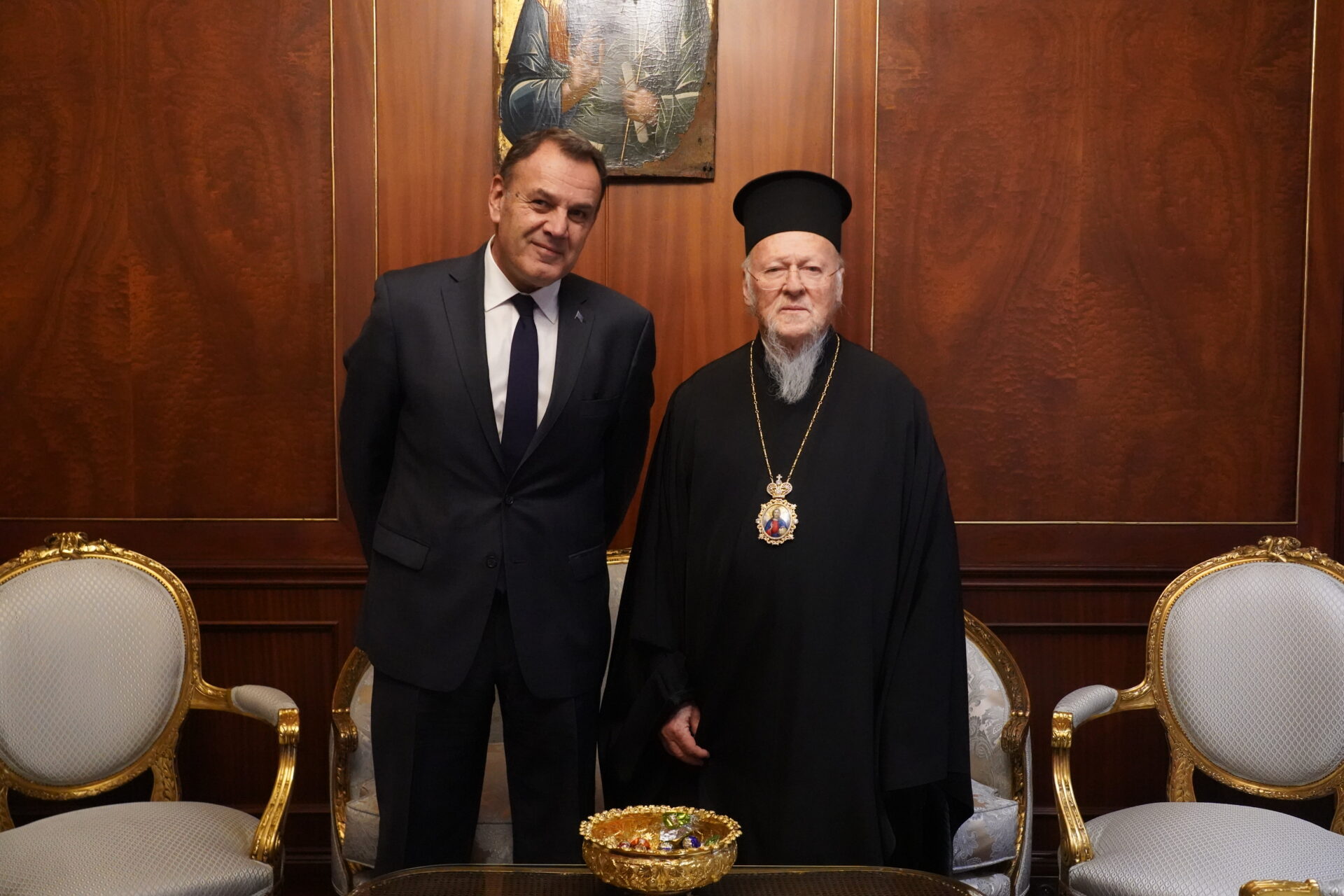Doxology at the Helsinki Cathedral for the arrival of the Ecumenical Patriarch
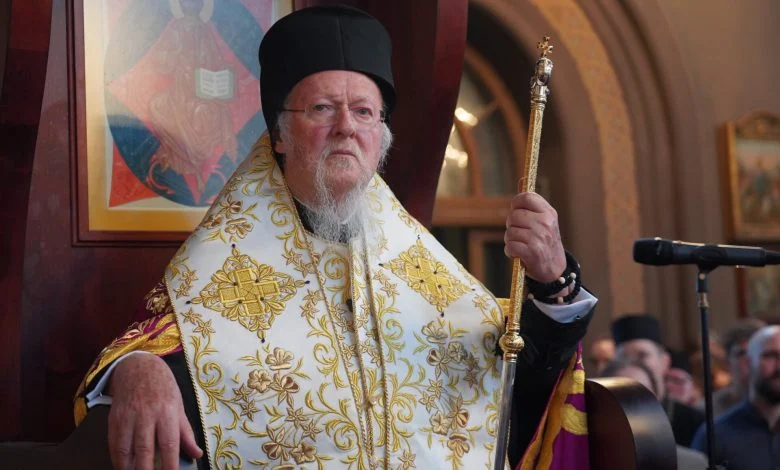

On Saturday afternoon, 9 September 2023, a festive Doxology Service was conducted at the Uspensky Cathedral in Helsinki, Finland, upon the arrival of His All-Holiness Ecumenical Patriarch Bartholomew in the country, in order to celebrate the 100 years Autonomy of the Church of Finland, with a presentation of the respective Tomos of the Ecumenical Patriarchate.
At the end of the Doxology Service the Ecumenical Patriarch spoke in English to the faithful who had gathered in the Cathedral, referring to the progress of the Autonomous Church of Finland and its spiritual relationship with the Ecumenical Patriarchate.
The following is the full speech of His All-Holiness:
«Your Eminence Archbishop Leo of Helsinki and All Finland,
Most Reverend brother Hierarchs,
Distinguished church and civil leaders,
Beloved sons and daughters of the Orthodox Church of Finland,
Today we are assembled in jubilant commemoration of one hundred years since the granting of Autonomy to the Orthodox Church of Finland by the Ecumenical Patriarchate, as well as in humble aspiration for the next one hundred years of a bright horizon for your cherished Church, which deservingly fills the Mother Church of Constantinople with immense satisfaction and appreciation.
Today you stand in the community of global Churches not only as a sign of stability and fulfilment, but also as a beacon of hope for the limitless future that awaits all those who rest on the boundless grace of God. This ultimately is what guides our Christian ministry in a world that yearns for reconciliation and consolation. All too often, we find ourselves professing success and triumph by looking back at our history and tradition that have undoubtedly shaped us. But Christians are called to look forward and upward, with a conviction of faith, hope, and love. After all, “where there is no vision, the people perish” (Prov. 29.18).
Yours is an exemplary Church, a model community. You are a communion that is small in number, yet immense in consequences. Among your countless achievements and ecclesiastical ministries, you have created a university faculty, a theological seminary, and a lay academy. This comes as no surprise, however, because you value intellectual education and spiritual formation as foundational and indispensable. Your music and art, your chant and iconography, have left an indelible mark on your national, religious, and aesthetic culture.
Where in other nations, the Church has struggled in its submission to or exploitation of the State, you have learned how to interact with and relate to the state authorities with a sense of integrity and dignity. It was not a surprise, then, that you were the first to respond within a matter of days to the unprovoked and unjustifiable invasion of the Russian Federation on the sovereign state of Ukraine—an immoral and criminal act encouraged and endorsed by the Patriarchate of Moscow. After all, you know from your own experience what it means to resist oppression and persecution.
Where in other regions of the world, the Church has been indecisive or ineffective with regard to its contact with or impact on Society, you have endeavored to hold together the dimension of being “in the world” but “not of the world” (Jn 15.19 and 17.14–16) with a sense of fairness and balance. It is hardly a surprise, then, that you were the first to embrace and implement the principles outlined in the social document, entitled “For the Life of the World” that was commissioned and approved by our Holy and Sacred Synod only three years ago. This is why your parishes and communities are unique and inclusive—involving laity, regardless of gender. We sincerely and wholeheartedly commend you for these pioneering initiatives.
In this regard, you have experienced long uninterrupted leadership under Archbishops Herman, Pavel, John, and now Leo. This, too, is not a surprise since you have enjoyed special spiritual associations with the historical New Valamo Monastery and the charming Lintula Convent. At the same time, you are no strangers to the ethos of the West. This is why you support and participate in ecumenical dialogues, inspiring others to maintain open and mutual exchanges with other confessions and communities, as well as with society more broadly.
Such is the rich history and legacy that we commemorate and celebrate today. Yet, as we mentioned at the outset of our patriarchal address, we are also looking ahead to the increasingly blessed future of this beautiful Church. Thus, it would be appropriate for us to offer some prudent insight and loving counsel from a Church that dates back to the earliest patristic centuries, a Church that has experienced and endured exultations but mostly tribulation, opportunities but especially obstacles, gains but primarily losses. Altogether, this chronicle has bestowed on the Ecumenical Patriarchate not only a self-sacrificial prerogative and selfless primacy within the Orthodox Church, but also a profound discernment and perennial wisdom that facilitates and coordinates Orthodox consensus and unity. It is the understanding and judgment of a Church that has stood the test of time, witnessing countless seasons of changes and challenges.
Here, then, are some paternal admonitions and spiritual exhortations, which we offer you as fundamental guidelines as your Church looks and journeys toward the next hundred years of devotion and service to this nation and the world at large.
Remain open to the world around you and embrace change with confidence in the Lord and without fear of evil. The world is constantly evolving in technology and communication. We are now entering the age of Artificial Intelligence, which will literally transform our world as we know it. The future of Orthodox Christianity depends on how we respond and integrate this reality, while at the same time retaining the principles of our faith and tradition. As a result of the pandemic, we learned—although, admittedly, we did so reluctantly—that we can proclaim the Gospel of resurrection over death in different ways than we have been accustomed. We understood that we must learn and not withdraw from science and medicine. We realized that we can reach so many more people across the planet in order to extend our support, compassion, and solidarity. This is not a departure from tradition; it implies a truly and fully living tradition. So our first advice to you is to remember and realize a spirit of openness.
Affirm and advance your inclusivity of all people and all of creation. This was surely the authority of the early apostolic community that fulfilled the Lord’s commandment to “go into all the world and preach the gospel to all creation” (Mk 16.15). Indeed, our venerable predecessor on the Throne of Constantinople., St. John Chrysostom, interprets the phrase “all creation” as encompassing all of created nature. As the world grapples with climate change and environmental degradation, let our church continue to lead the way in proclaiming the sacredness of a sustainable planet. This has also been the mandate of the Ecumenical Patriarchate through the centuries to this day. Our vocation is not to judge or condemn the world that prerogative does not belong to us but to the Lord. Our vocation is to be a beacon of hope and salvation for all people—irrespective of religion, race, culture, or gender. The future of your Church lies in being inclusive and universal—in other words, non-sectarian. Always remember that the ecumenical perspective is a central part of our creed (as we confess “one, holy, catholic and apostolic Church”), but also in our name (as members of the Ecumenical Patriarchate). Our doors and our hearts should welcome everyone. So our second advice to you is to incorporate and insist on a spirit of inclusion.
Finally, do not neglect your obligation to empower the younger generation. As we repeatedly emphasize, the young minds and hearts among us are not simply the future of our Church; they are its present. We must find ways of including young men and women in every aspect of our ecclesiastical life, administration, and ministry. We should engage them in liturgy and in leadership, in mission and outreach. Our youth brings new perspective and energy—renewed vibrancy and spirit—to our communities. They provide the foundation for a Church that wishes to remain relevant in the world and related to its problems. They teach us not to be afraid of change and development. They remind us that the role and responsibility of the Church does not lie in some “golden age” of a distant past or in some “utopic vision” of a remote future, but in the challenging reality of the present. It is here and now that the Body and Blood of Christ are broken and shared—as we pray in the Liturgy of St. Basil—”for the life of the world.” Or, as we recall on the Sunday of Orthodoxy, “this is the faith of the Apostles; this is the faith of the Fathers; this is the faith of the Orthodox; this is the faith which has established the Universe.” So our third advice to you is to imagine ways of retaining and reaffirming a spirit of youthfulness.
For our part, from the venerable See and Mother Church of Constantinople, we pledge that we shall walk with you on this journey into a promising future, where the grace of God is your light and direction, the love of our Orthodox faith is your compass and security, and the communion of the Holy Spirit is your constant comfort and companion.
May God bless you—bishops, priests, deacons, and monastics; men and women, faithful laborers in the Lord’s vineyard—for all that you have achieved over the last hundred years and for all that you are called to accomplish over the next one hundred years. Amen!».
